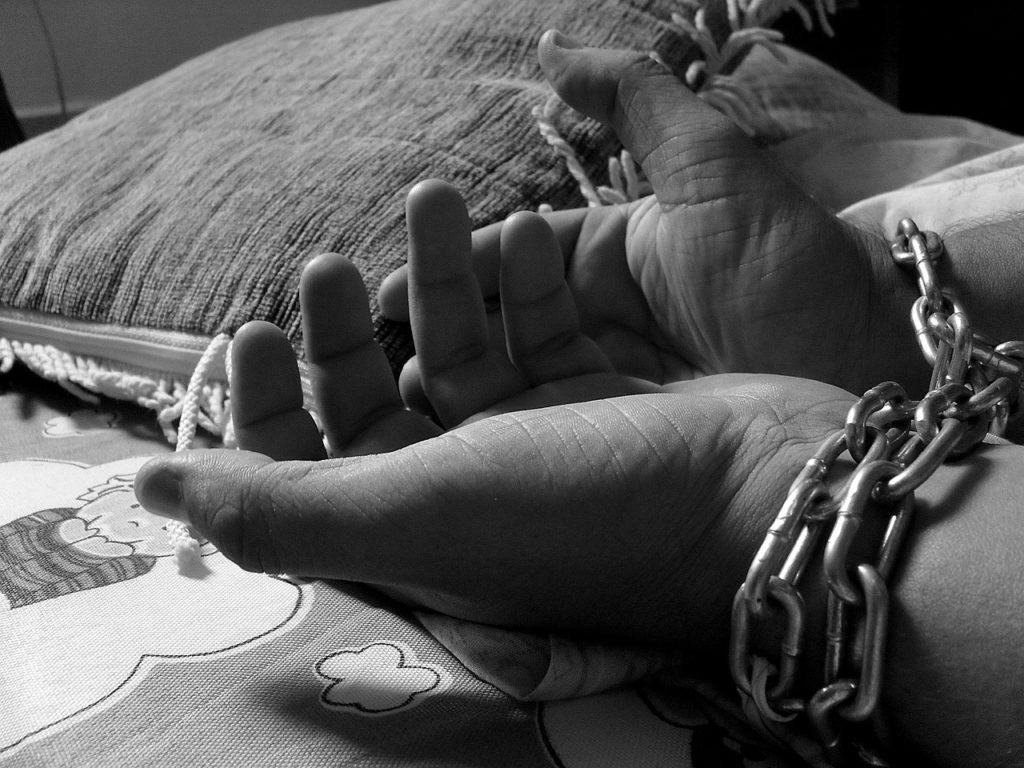
By: Stephen Hodzic, Staff Writer
Pennsylvania’s human trafficking statute presents options to not only investigative and prosecute suspected cases of human trafficking, but also to provide restitution to victims in civil cases.[1]
Human trafficking is considered one of the fastest growing crimes in the world.[2] While often considered to be something that takes place outside of the United States, human trafficking takes place all over the world, including right here in Allegheny County.[3] Awareness of human trafficking has grown significantly over the last decade, both around the world and locally. In October, the Public Safety Department in Pittsburgh held a citywide meeting to discuss human trafficking in the Pittsburgh region and Governor Tom Wolf signed legislation that protected child victims of human trafficking from prosecution of crimes they were compelled to commit while being trafficked.[4]
The federal government has addressed the issue by creating laws that define human trafficking and give investigators and prosecutors different ways to address the issue.[5] Many states have enacted a variety of legislation to address the issue as well. Pennsylvania enacted its own trafficking statute in 2014.[6] The legislation defines a trafficking offense as a felony of the second degree, which occurs when someone “recruits, entices, solicits, harbors, transports, provides, obtains or maintains an individual if the person knows or recklessly disregards that the individual will be subject to involuntary servitude” or if the individual(s) receive anything of value from any act of another individual who is involved with the aforementioned activities.[7]
The Pennsylvania statute gives specific details on actions and terminology that can be used to define trafficking and trafficking victims (labor trafficking, sex trafficking).[8] The statute then discusses different prosecution options, including asset forfeiture.[9] Asset forfeiture can target individuals, entities, or organizations, and can be used for not only taking part in the act of trafficking but also with the planning of perpetrating.[10] While asset forfeiture can take place with many different offenses, it is interesting to note that 70% of the commission made in selling the property is to be used to fund services and grants in relation to victim’s services for human trafficking victims.[11]
The statute also directly discusses civil causes of action.[12] When the crime involves a victim of any sex trade act, the civil action can be brought against an individual who recruits or profits from the victim, who abuses or causes bodily harm to the victim, or who knowingly advertises or publishes advertisements for purposes of recruitment in to sex trade activity.[13] The statute states that it allows for treble damages upon proof that the defendant’s actions were willful and malicious.[14] The statute of limitations for this act are different depending on the age of the victim.[15] For victims who were victims as an adult, an action may be brought within five years of the last act against the individual; and for victims who were under the age of eighteen for any offense, they may bring an action until the victim reaches thirty years of age.[16] It is also included that the defendant cannot assert a defense of statute of limitations if they induced or coerced the plaintiff to delay the filing of the action.[17]
It is interesting to note that the PA trafficking statute mirrors the federal statute on several topics.[18] Both the federal statute and the local statute specify any individual who benefits/profits from trafficking can be charged with a trafficking offense, and that a victim can acquire restitution from such individuals.[19] Also, along the lines of restitution, both the federal statute and the local statute directly discuss restitution as well as reference asset forfeiture directly. [21] By having the statutes address such issues directly within the language of the statute, it provides clarity for both courts and victims as to what steps can be taken to support victims in attempting to recover from their ordeal.
If you or someone you know is at risk for being trafficked please do not hesitate to reach out to your local law enforcement agency. Additional points of contact for assistance:
https://humantraffickinghotline.org/(1-888-373-7888)
https://Pittsburgh.fbi.gov (412-432-400)
https://www.dhs.gov/report-incidents(866-347-2423)
https://www.ice.gov/webform/hsi-tip-form(866-347-2423)
Sources:
[1]18 Pa.C S. 30
[2]https://ovc.ncjrs.gov/humantrafficking/lawenforcement.html
[3]https://www.wpxi.com/news/top-stories/human-trafficking-larger-problem-in-western-pa-than-many-believe/673550593
[4]https://www.wtae.com/article/city-wide-meeting-being-held-to-discuss-human-trafficking-in-pittsburgh-region/23707713
[5]22 U.S.C. 78; https://www.justice.gov/humantrafficking/key-legislation
[6]18 Pa.C.S. 30
[7]Id.
[8]Id.
[9]Id.
[10]Id.
[11]Id.
[12]Id.
[13]Id.
[14]Id.
[15]Id.
[16]Id.
[17]Id.
[18]18 U.S.C. 77; 18 Pa.C.S. 30
[19]Id.
[21]Id.; 18 Pa.C.S. 30